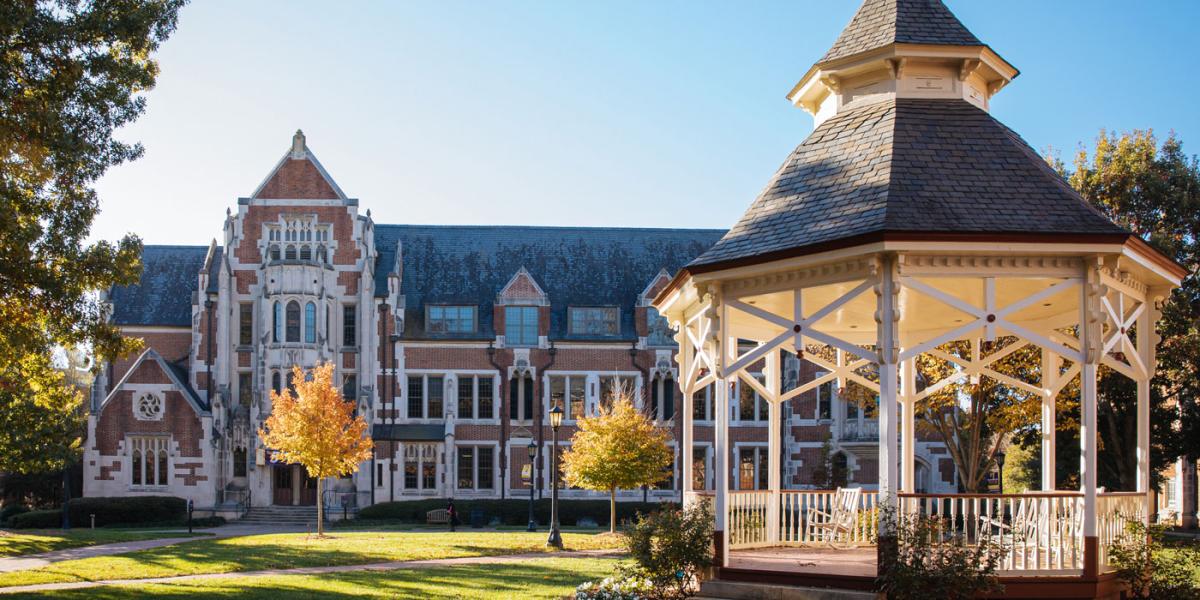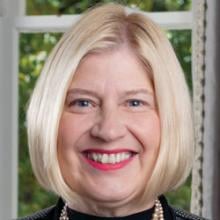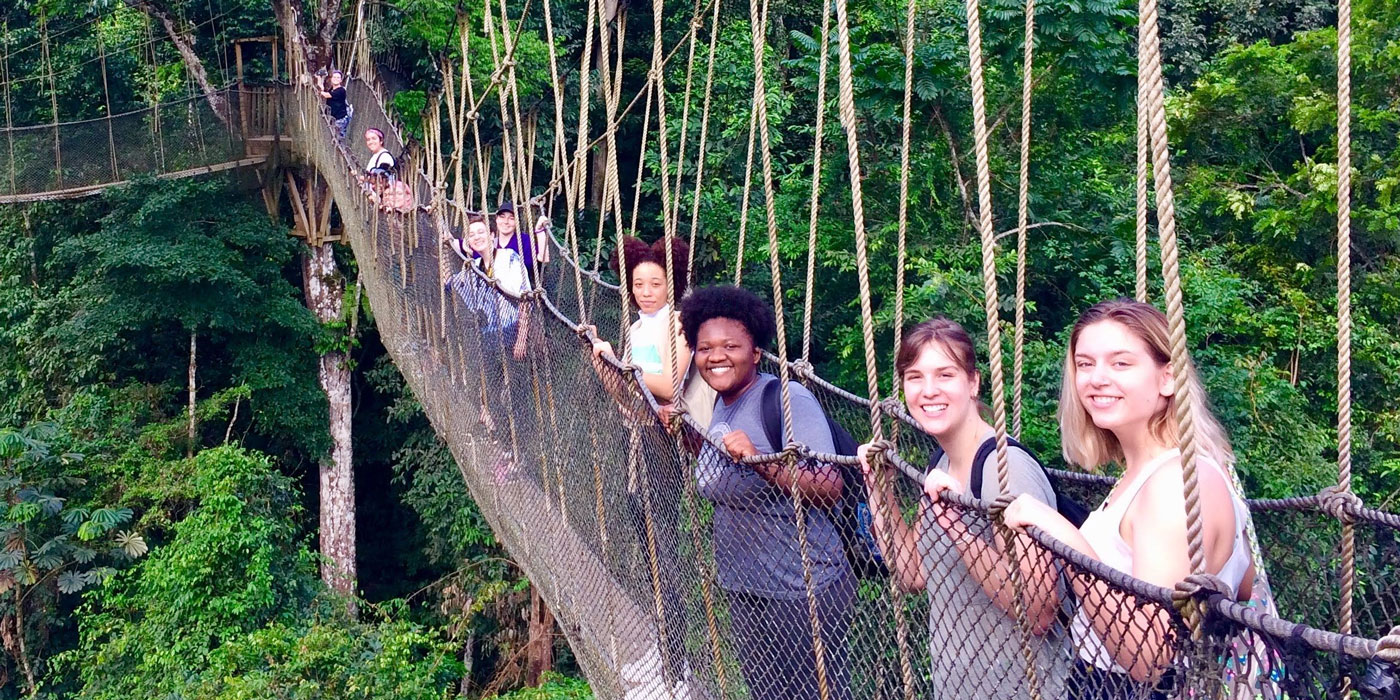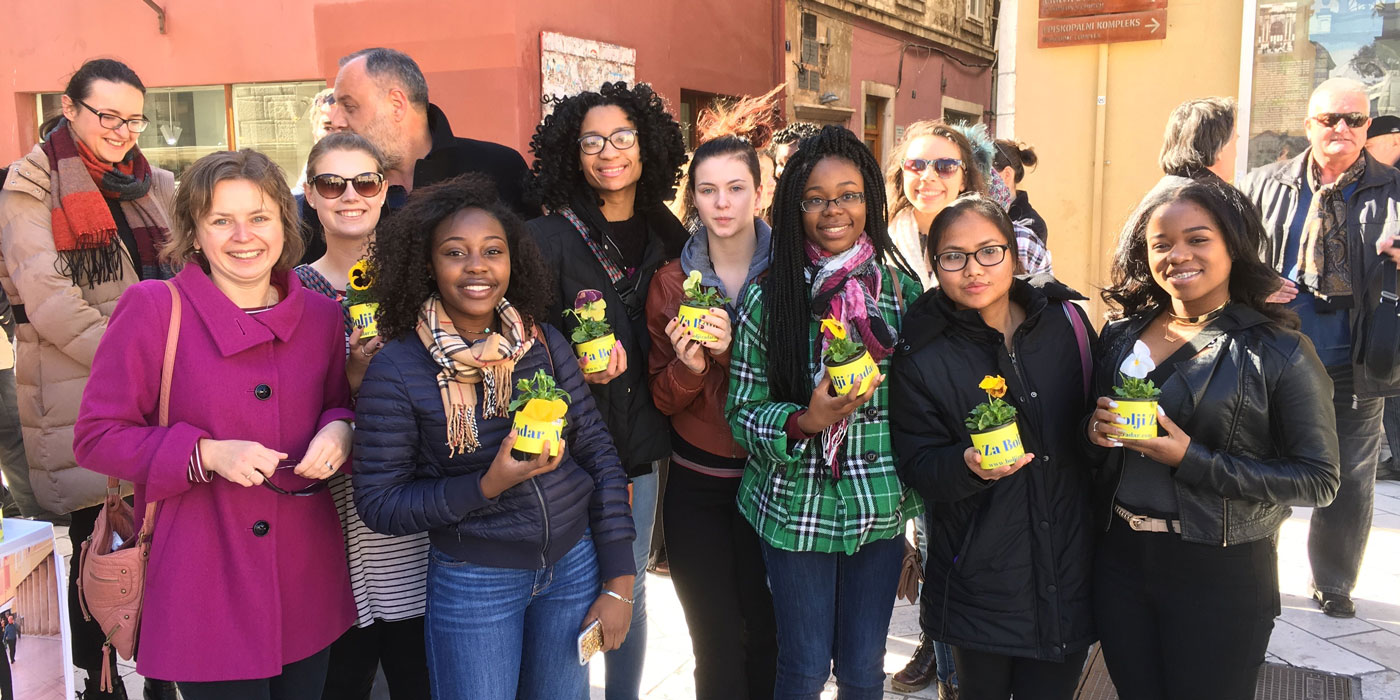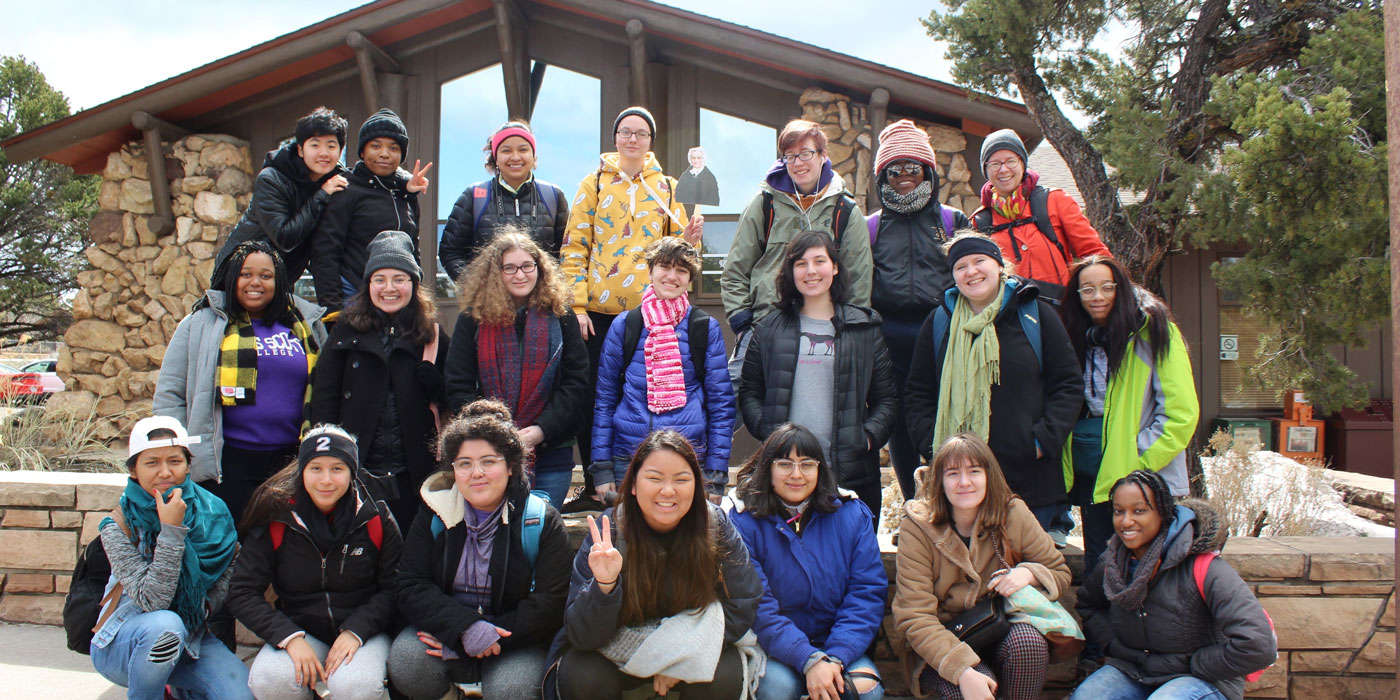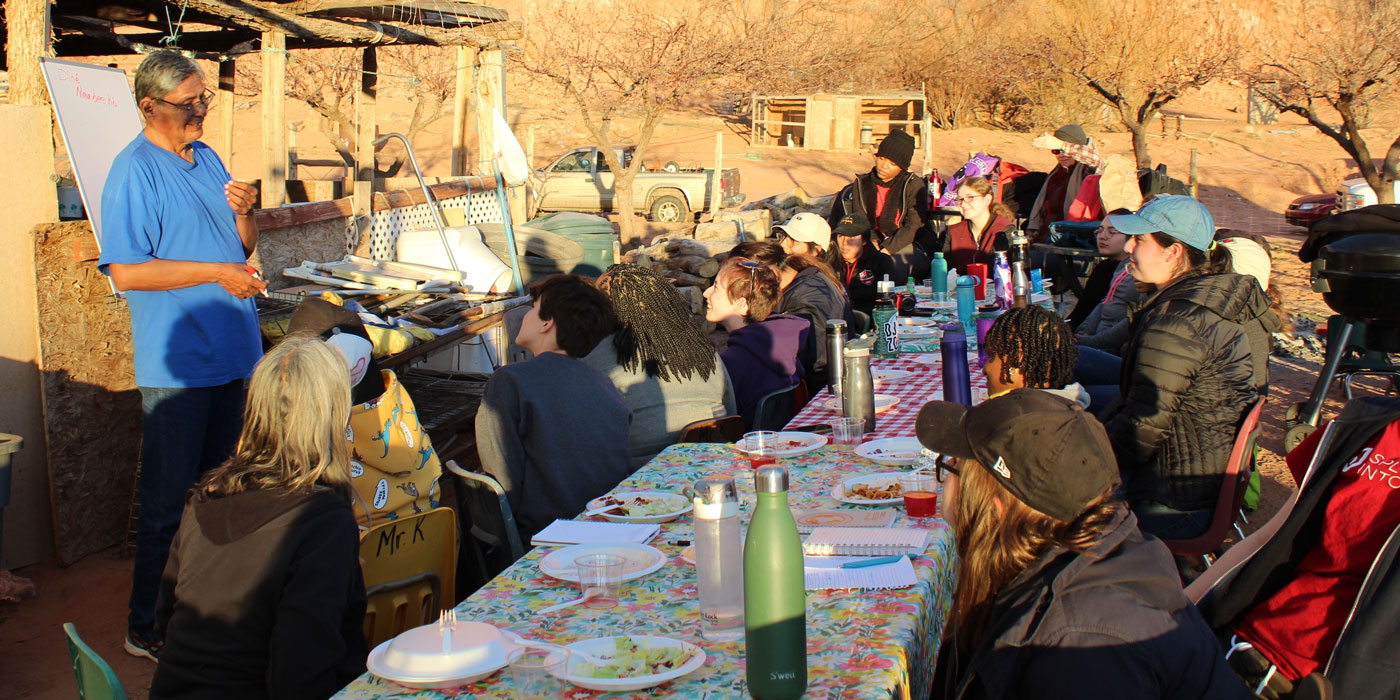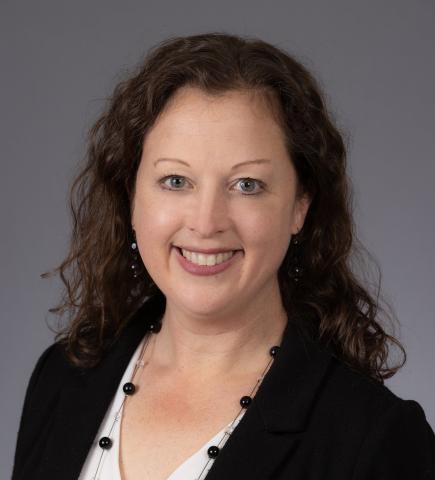
Data Collection and Analysis

DHS Entry/Exit Overstay Report
Survey Design 101: Collecting Effective Survey Data in International Education
Factors Influencing International Student Enrollment Growth and Decline
2020 Spotlight Agnes Scott College
Like almost all of her classmates at Agnes Scott College, Ximena Guillen spent 1 week of her first year of college immersed in another culture. Guillen, now a junior biology major, visited the Navajo Nation in Tuba City, Arizona, through a first-year study away program. “As someone who has seldom left Georgia, I felt so fortunate to be presented with the possibility of taking an in-depth look into the history and customs of another culture in an environment with individuals who were just as eager to learn as I was,” Guillen says.
Due to this unique campuswide program, more than 90 percent of the students at Agnes Scott College, a private women’s liberal arts college in Decatur, Georgia, have a global experience before the end of their first year of college. Whether they travel outside of the United States, or, like Guillen, travel domestically to places such as the Navajo Nation, Puerto Rico, and New York City, all students gain substantial exposure to other cultures.
Every first-year student at Agnes Scott is required to enroll in a semester-long, four-credit course called Global Journeys, which focuses on cultural, economic, and political issues that link the global with the local. A one-week, faculty-led immersion experience at an off-campus destination in the middle of spring semester is bookended by research and reflection. The first cohort of students, who participated in spring 2016, graduated in May 2020.
The diversity of destinations reflects the identities of the college’s enrollment of around 1,000 students, who Agnes Scott attracts from 28 different countries. “Even though the core of Global Journeys is centered around the global immersion experience, it’s fundamentally about trying to develop global competency in our students,” says Regine O. Jackson, PhD, chair of sociology and anthropology and faculty coordinator for global learning. “And some of that starts just by getting them comfortable talking across differences in the classroom or seeing the difference that’s all around them on our campus.”
“Because global learning at Agnes Scott has been designed as a program that focuses on the global patterns, systems, and structures that shape our lives, we did not want to make global learning synonymous with leaving the country or traveling internationally,” says Gundolf Graml, PhD, associate dean for curriculum and strategic initiatives.
Developing Global Competency
The Global Journeys program is funded through the college’s endowment as part of a strategic repositioning plan that created the transformative SUMMIT curricular initiative for global learning and leadership education.
Global Journeys courses are designed as interdisciplinary introductions to global learning with a focus on community engagement. Agnes Scott offers 14 to 16 sections of Journeys courses every spring. While they are offered in different disciplines across the college, the courses share common readings and focus on one of four themes: “Globalization”; “Imperialism, Colonialism, and Diaspora”; “Identity, Self, Culture, Other”; and “Why Travel? The Ethics of Travel.”
These courses also try to thwart the traditional notion of going to developing countries to do service learning and countries in Europe to study history and culture, Jackson adds.
All students travel during the same week and then join with other sections to debrief upon return. “I have found this to be an engaging framework to structure a class because students are having parallel experiences and have common ground, but the details of each of the different destinations are so different,” says Tracey Laird, PhD, music professor. “It opens up an opportunity for students to not only learn about our destination and the experiences we share within a class of 20 people, [but] there’s a real energy among the first years where they’re comparing different ways in which concepts like colonialism manifest themselves in their particular destination.”
While the travel component for first-year students participating in spring 2020 has been postponed until 2021 in response to COVID-19, educators are devising innovative ways to continue global learning. In spring 2020, Jackson taught a Global Journeys course focused on race and belonging in Cuba, and she was able to take students to exhibitions at Spelman College and Kennesaw State University focused on Cuban art. She and the students also ate at restaurants in Atlanta that are owned and operated by Cuban immigrants. “We always emphasize things like local-global connections,” she says.
Biology professor Srebrenka Robic, PhD, proposed and taught one of the first Global Journeys courses offered in the STEM disciplines, a course on the ecology and environment of her native country, Croatia. During the weeklong travel component, Robic and her students explored various continental and coastal ecosystems. She took students to visit a nonprofit focused on sustainability in Zagreb and the Institute of Oceanography and Fisheries in Split. For the final project of the course, students were asked to pick an environmental topic and explore the issue in both Croatia and the United States.
Robic says students who have never been able to travel prior to taking a Global Journeys course show the most gains. “The biggest impact I’ve seen is a development of confidence and excitement that [studying abroad] is something that they can do,” she says.
Guillen, who had little travel experience before going to Arizona with Laird’s Global Journeys course, says, “This was my first time riding on a plane as well as being away from my family for so long, so I worried that a possible lack of support would make me not enjoy this experience in its entirety. In the end, this fear of feeling like a stranger in an unknown place quickly modified itself into a personal goal to step out of my usual comfort zone...and to appreciate each encounter.”
Continuing the Global Journey Beyond Year One
The Global Journeys courses lay the foundation for a larger curriculum initiative, SUMMIT, which focuses on providing curricular and cocurricular global learning opportunities throughout students’ 4 years at Agnes Scott. Students are able to study foreign languages or enroll in more than 200 interdisciplinary global elective courses. Students who complete a series of required and elective courses, as well as participate in additional education or internship abroad opportunities, are also able to earn a global specialization certificate.
Data collected over the past 4 years indicate that Agnes Scott’s global learning curriculum has enhanced comprehensive campus internationalization and significantly increased intercultural and global competencies among students. Intercultural competence is tracked through a multimethod, longitudinal assessment called the Global Pathways Study. Students complete the baseline survey before they arrive on campus and then take follow-up surveys after every year of study, 1 year after graduation, and 5 years after they graduate to examine their change over time. Findings have indicated that students demonstrate a significant increase in the subdomains of intercultural competence, including knowing, affect, social interaction, and social responsibility, from baseline to follow-up.
In the 2018–19 academic year, 92 percent of students listed the first-year Global Journeys immersion as a valuable extension of their learning. Students integrate the cultural competencies acquired by the Journeys experience into their résumés and, assisted by Agnes Scott’s Office for Internships and Career Development, practice how to foreground these experiences in applications for graduate school, internships, and jobs.
Laird says that engaging students through education abroad early on in their college career changes how they approach the rest of their education. “It awakens a kind of energy and excitement that, as a college professor, you hope to awaken in every single student,” she says.

